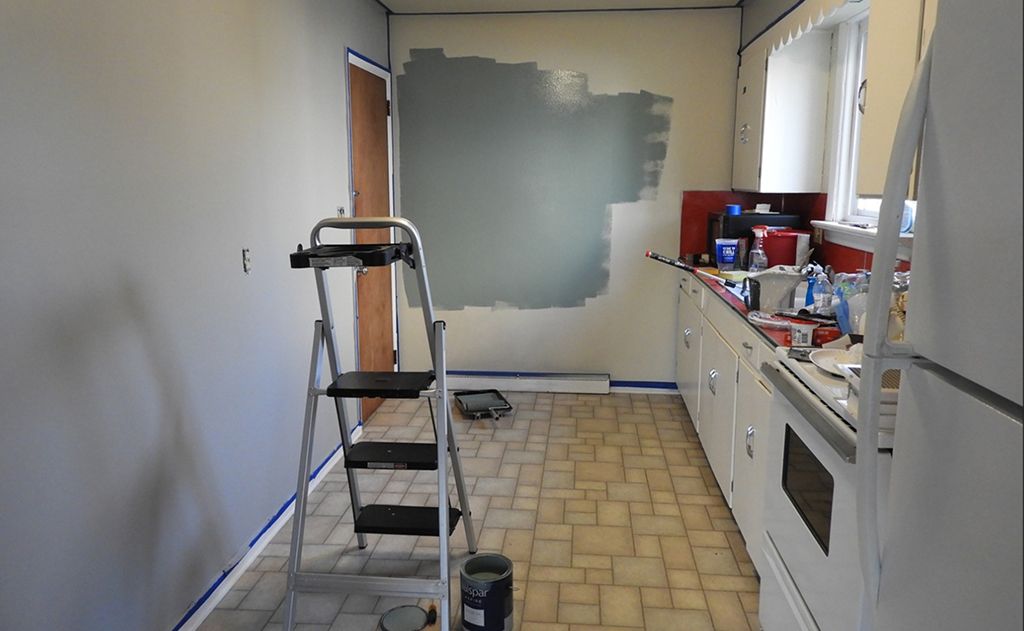The home purchase can create in buyers a sense of wonder, joy and anxiety. They can get caught up in the excitement of what lies ahead, yet forget the responsibilities associated with homeownership. As real estate professionals we do our best to temper our clients’ emotions, because a certain degree of level-headedness is most welcomed.
One way to look objectively at a home purchase is through the inspection phase. Inspections and home inspectors should be your ally after you’ve taken those first steps in acquiring a property. After your offer (price, terms and conditions) is accepted, you want to make sure you’re able to move forward with the home purchase. As a buyer, electing various contingencies on the sales agreement, such as a home inspection, is vital to protecting yourself. You’ll need the services of a home inspector, but not just any inspector. You want to hire one that’s loyal to you!
There are many things to contemplate when seeking the services of reputable inspector, but we’ve highlighted four top ones to consider below:
Look To Those You Trust For Some Direction
Our closest circle of friends can often provide us with guidance in many of life’s choices. Perhaps you turned to your friends and family to find your REALTOR®? May we recommend you do the same in your quest for the right home inspector. Once you have a list of possible candidates, search online reviews.
Seek out critiques on sites like Google, Yelp, Angi and the Better Business Bureau. This will help you gain a better understanding of who might be a fit for you and the home you purchased. You should also cross-reference this list to discover if those you’re considering have membership in a professional association such as the American Society of Home Inspectors or InterNACHI. To search for a inspector on these sites, use the links below.
American Society of Home Inspectors
International Association of Certified Home Inspectors (InterNACHI)
As a rule of thumb and good practice, your agent can and should provide you with recommendations as well, at least three, who are experienced professionals in your market. Reputable REALTORS® want qualified inspectors because they want to protect their buyer and keep them informed.
Question Your Top Choices
You should evaluate potential home inspectors just as you would in choosing your real estate professional. What level of experience do they have? Are they members of a professional association (see above)? Do they carry insurance? Are they licensed? Can they provide for you a sample of their work (in terms of a report)? Is this something they do full-time? It’s important to dig a little and get a sense of the quality of work of the home inspector. Do your due diligence and ask if you can touch base with their recent past clients.
As a homebuyer, you should get a sense for how long they’ve been in business and maybe even how many inspections they’ve performed over the years.
Their insurance coverage is important should they make an error or oversight during the inspection. What qualifies as an oversight? Maximum liability for the inspector is often only the cost of the inspection. This is why it’s important to understand what’s written in his/her contract.
In Pennsylvania, an inspector doesn’t have to be licensed, but they do have to be a member of one of the professional associations. Furthermore, you aren’t considered “licensed” until you complete over 100 inspections. Some who aren’t licensed may indeed lack sufficient training. On the other hand, there’s no guarantee that someone who’s licensed will do excellent work either.
A sample report can also give you insight into the inspector you’re interviewing. It should be organized and clearly written. It should include photos, identify the problems, why those problem areas can be issues for the homebuyer and, in some cases, what should be done about those defects. The length of these reports can vary based upon the age of the home, its square footage, its condition, the number of systems in place, if it will include any ancillary inspections, etc., and they are typically twenty-five to fifty pages in length. They can act as a control for comparison on the home’s condition post-inspection, prior to settlement. Something may have happened between inspection and closing and chances are a good report will provide the evidence you may be seeking.

The Inspection Itself
Again, the duration of a home inspection (like a report) can vary based upon those things mentioned above, but the vast majority take longer than two hours to complete. Make sure to ask the inspector for a play-by-play regarding what the inspection will entail so you’re both on the same page. Ask them about how long the inspection will last.
Question them as to if you should be present the whole time and see what response they provide. Choose an inspector who wants you there the whole time, from the start of the inspection until its completion. If they say it’s not necessary to even attend or attempt to dissuade you from coming altogether, it could be a red flag. Choose a picky inspector. Choose one who’s open to listening to any concerns about the house that you’re bringing to his/her attention prior to the inspection.
You’ll also want to understand what the inspection will and won’t cover. What can you expect from your home inspection? There might be components or areas of the home like the roof, pool or deck that won’t be examined. The visual components/defects are usually the bulk of what is examined during the inspection process. If you need additional inquiries such as wood-destroying insect, radon, septic system, well testing, mold, etc., you need to check with the inspector to see if they can perform that testing and if so, what the extra fees would be.
Of course, there are times, post-inspection, when you’ll want to walk away from the transaction. Should you stay or should you go? When is the appropriate time to walk away after a home inspection? Your real estate professional will guide you through this process as well — lean on them.
Conflicts Of Interest
Your inspector shouldn’t be offering their services for repairs of anything they flag on their report. This would be unethical and would clearly be a conflict of interest. They understand this. They are in the business of inspecting homes, not repairing them. It’s in your best interests to keep home repairs separate from the inspection process. While you’re at it, you may want to check out a home warranty plan that meets your needs for your home systems and appliances.
The home inspection phase of a real estate transaction can be nerve-racking, but it can serve the buyer well. If the inspector does his/her job accurately and thoroughly, the report can provide worthwhile information and aid the purchaser in planning for the future. This period of the transaction is limited, and therefore, time is of the essence. Your REALTOR® will direct you as you look to fulfill your commitments along the way.
In most cases, it’s highly recommended that buyers employ various inspection contingencies on their sales agreement. With that comes selecting an experienced inspector(s) who will look out for your best interests (they work for you!) and is more than competent. You need only look to a 2018 case study conducted by Consumers’ Checkbook, where it created twenty-eight issues it thought any inspector should catch to raise concerns about your home inspection. Consumers’ Checkbook was shocked and concerned as to what those inspectors missed in that study.
This is a field where experience matters. Review the property disclosure of the seller, but don’t rest there. In virtually all situations, the seller isn’t an inspector and neither are you. If you see something, say something – an extra pair of eyes never hurt. After you’re present for the entire inspection, if you notice some problem area, which was discussed on site, is missing from the report, bring it up with your inspector and agent for clarification. An addendum to the report may need to be made in order to protect you moving forward.
If you’re a first-time homebuyer and you have questions beyond the inspection, click here for additional insight.
Happy inspecting and good luck in your search for your dream home!


